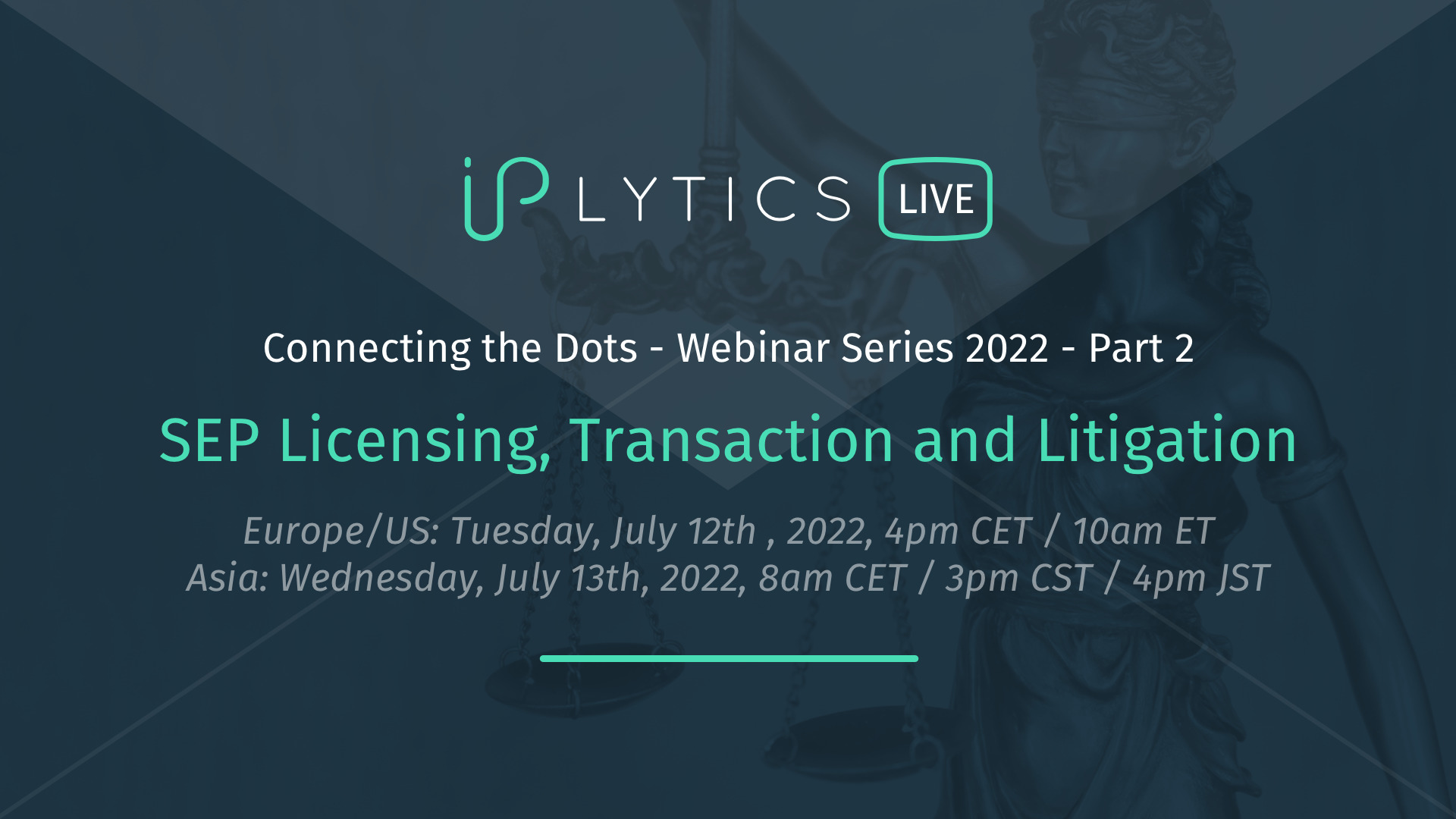Connectivity standards will change the world as we know it. Standards such as 5G or Wi-Fi 6 will connect devices, machines, cars, and even entire factories on the Internet of Things (IoT). Companies that own standard essential patents (SEPs) will not only shape the future of connectivity but have the means to monetize and enforce SEPs since any implementer of standards subject to SEPs such as 5G, Wi-Fi 6, or video codec must pay royalties or otherwise compensate the use of the patented technology.
SEPs are important bargaining chips to negotiate licensing deals across industries to enter new markets, control supply chains, litigate, and acquire and sell assets. To have a seat at the FRAND negotiation table and ensure a sustainable and successful IP strategy in markets where patents and standards matter, decision-makers must have all information at hand to understand the complex landscape of standardized technology fully. In this 3-part webinar series, we are connecting the dots for data such as patent declarations, pooled patents, litigated SEPs, standards contributions, and standards documents.
The 2nd part of the webinar series “Connecting the Dots” talks about SEP Licensing, Transactions, and Litigation and covers the following:
- How can I monitor the changing SEP ownership and litigation landscape?
- How can I identify potential licensees and licensors to prepare for SEP licensing negotiations?
- How can I quantify legal risk and litigation risk early on?
- How can I weed out ‘weaker’ patents, focusing resources on higher-ranked patents to optimize my SEP portfolio for licensing?
- How can I identify SEP portfolios to commercialize/license or use for acquisition?
The speaker and moderator for this webinar will be:
Tim Pohlmann, CEO IPlytics
The webinar is scheduled for Thursday, July 12th, 2022 at 4 PM CEST / 10 AM ET. Save your spot and register here.

![[IPWatchdog Logo]](https://ipwatchdog.com/wp-content/themes/IPWatchdog%20-%202023/assets/images/temp/logo-small@2x.png)


![[Advertisement]](https://ipwatchdog.com/wp-content/uploads/2024/04/Patent-Litigation-Masters-2024-sidebar-early-bird-ends-Apr-21-last-chance-700x500-1.jpg)

![[Advertisement]](https://ipwatchdog.com/wp-content/uploads/2021/12/WEBINAR-336-x-280-px.png)
![[Advertisement]](https://ipwatchdog.com/wp-content/uploads/2021/12/2021-Patent-Practice-on-Demand-recorded-Feb-2021-336-x-280.jpg)
![[Advertisement]](https://ipwatchdog.com/wp-content/uploads/2021/12/Ad-4-The-Invent-Patent-System™.png)

Join the Discussion
No comments yet.